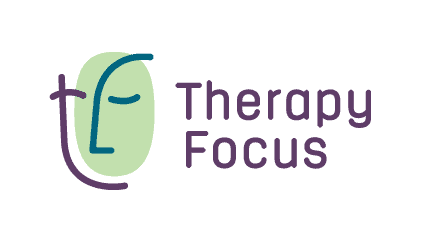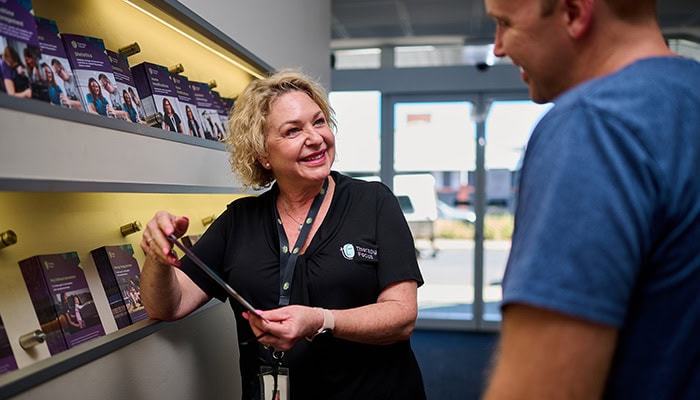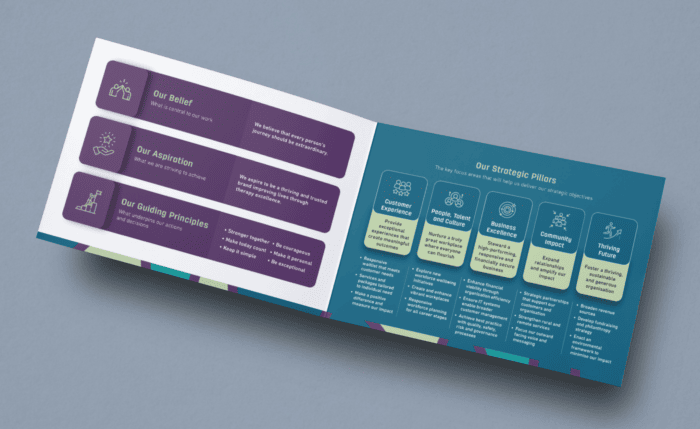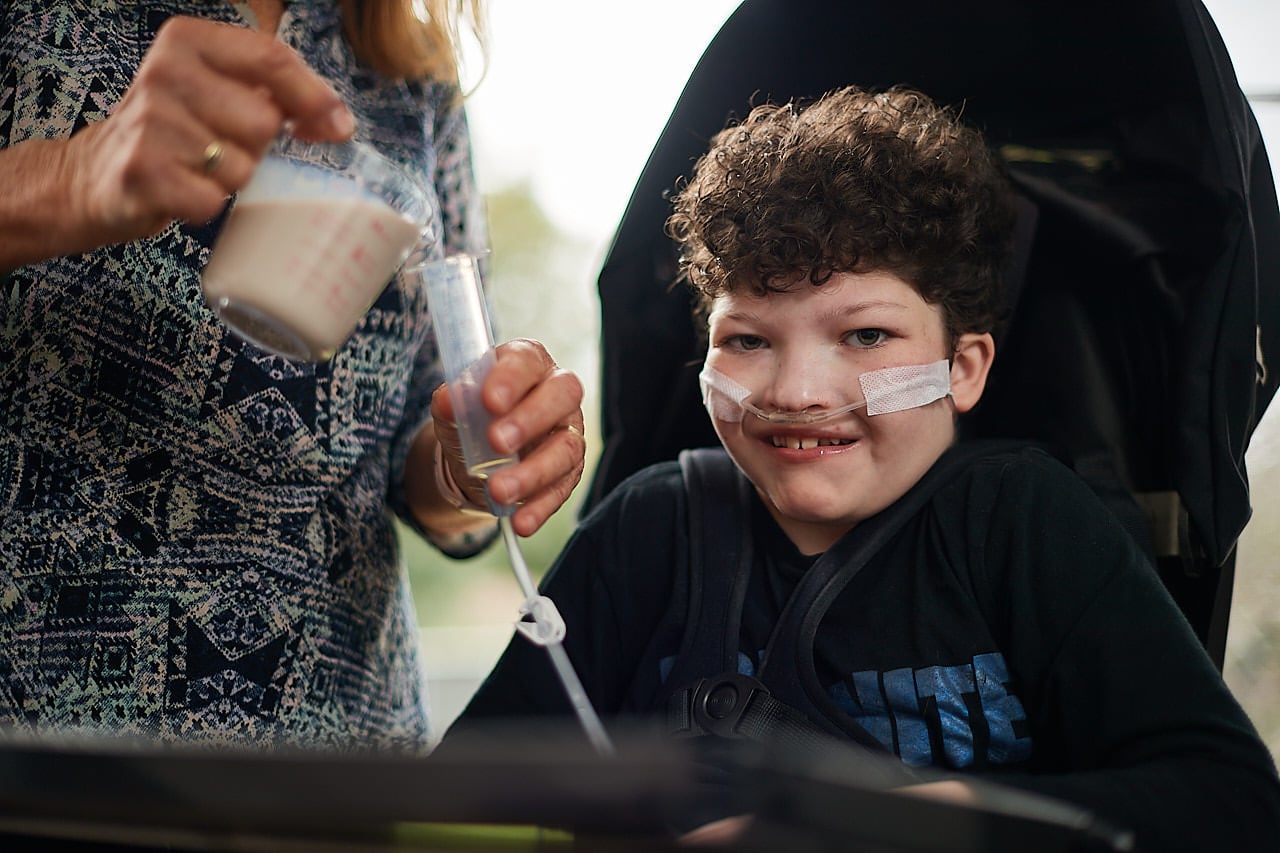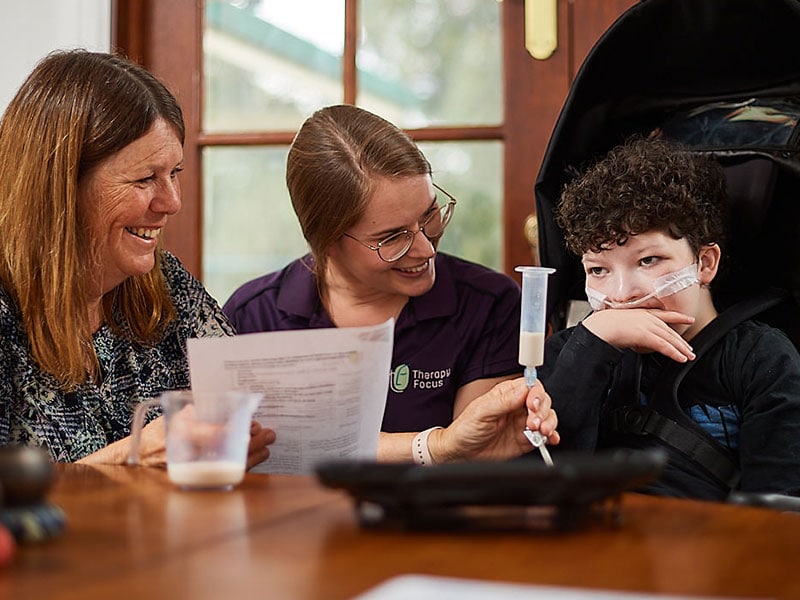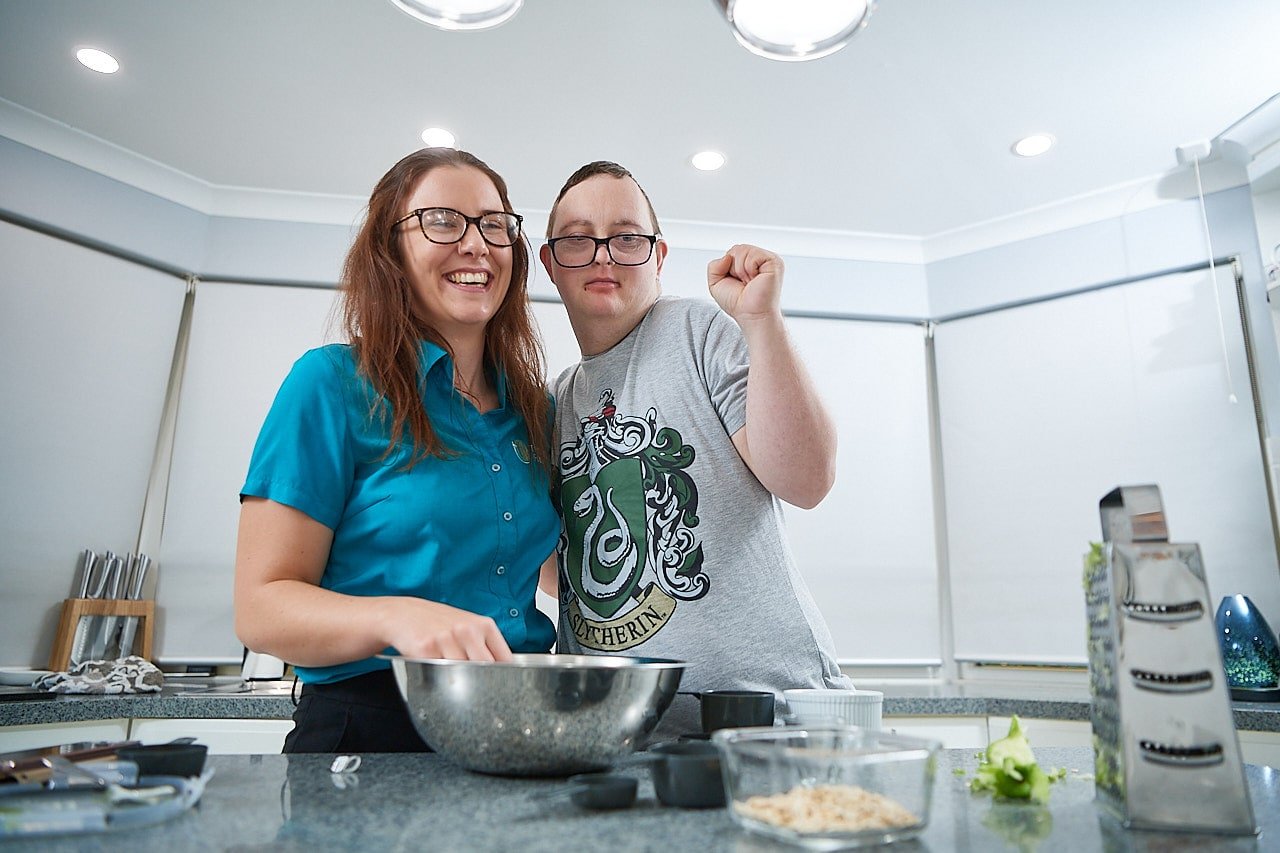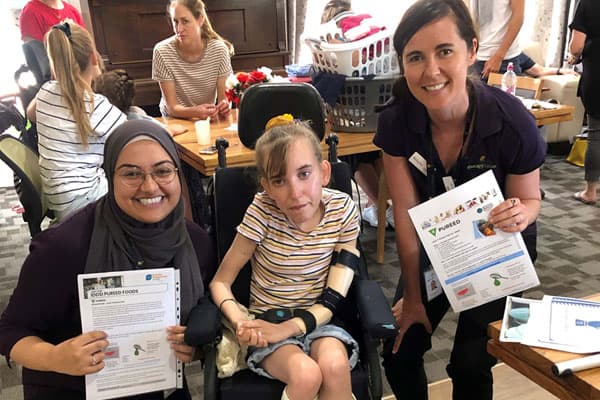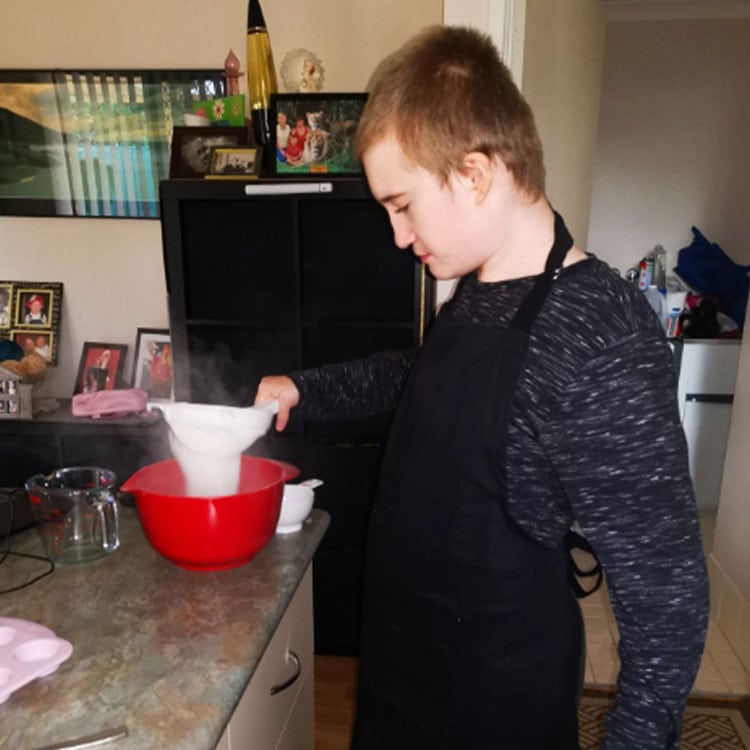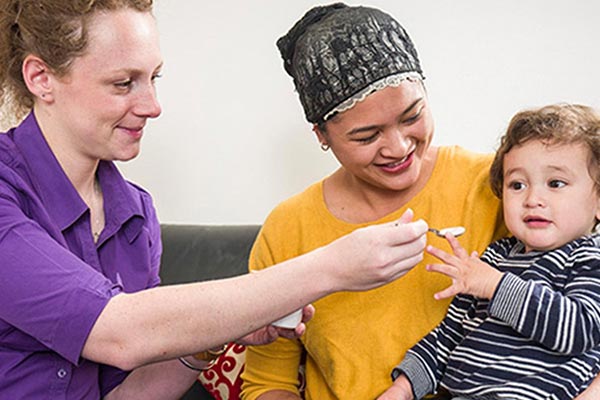Dietetics
Our dietitians help manage and prevent poor nutrition by supporting people’s dietary needs.
What does a dietitian do?
Dietitians understand how food and drink help to nourish the body. They provide advice and support for diet and nutrition, helping people make healthy choices. Dietitians also support people who have health conditions that are affected by diet or can be treated with nutrition. Our Accredited Practising Dietitians work as part of our therapy teams, helping people living with disability achieve their nutrition and mealtime goals.
To learn more about dietetics visit the Dietitians Australia website.
Our Dietetic Services
Our dietetic services are available to people of all ages who have Autism Spectrum Disorder, intellectual, neurological and physical disabilities, as well as developmental delays. Services can be provided at one of our offices, online through teletherapy or in the comfort of your own home, with travel fees adjusted based on your location.
Ready to start your therapy journey?
Apply online now

How we can help
Our dietitians assess and support a range of issues related to diet and nutrition including:
- Difficulties with swallowing, chewing and drinking
- Fussy, resistant and picky eating
- Faltering growth in children
- Stressful mealtimes and other mealtime challenges (e.g. food refusal)
- Bowel issues (e.g. constipation, diarrhoea, limited fluid/fibre intake)
- Pressure injuries (e.g. poor wound healing, prevention of pressure areas)
- Unexplained weight gain in adults
- Non-oral feeding (tube feeding) and tube weaning

Working closely with individuals, families and carers, our dietitians use medical nutrition therapy to manage and prevent poor nutrition and related health conditions. They do this by:
- Assessing nutritional needs, eating behaviour and dietary intake
- Providing dietary education and advice
- Developing customised plans and strategies
Our dietitians will work with other allied health professionals to help achieve nutrition and mealtime goals.
Accessing our services

State-Funded Disability Services
We’re a contracted provider for the WA State Government’s Department for Communities, Disability Services.
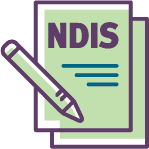
NDIS
As a registered provider for the National Disability Insurance Scheme, we can help you make the most of your NDIS Plan.
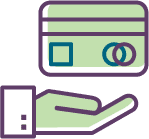
Fee for Service
Not eligible for government funding? We can provide a customised quote based on your needs. Private health rebates apply to some services.
Related Articles
How we work
We take a transdisciplinary approach to service delivery and use a Key Contact model to ensure the people we work with have one main contact, but access to a network of therapists.
